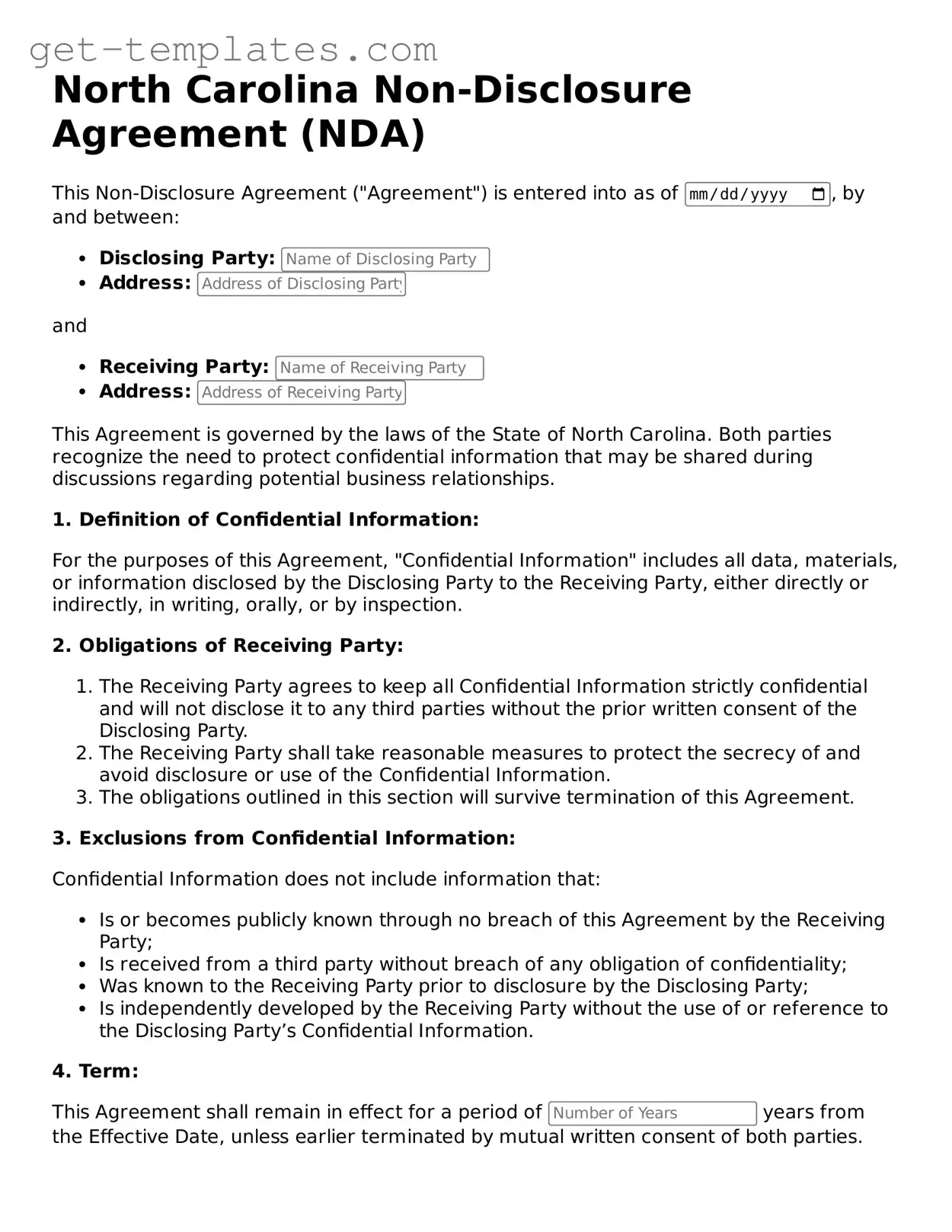Attorney-Approved Non-disclosure Agreement Document for North Carolina
A North Carolina Non-disclosure Agreement (NDA) is a legal contract designed to protect confidential information shared between parties. This form ensures that sensitive data remains private and is not disclosed to unauthorized individuals. Understanding the importance of an NDA can help individuals and businesses safeguard their valuable information.
Get Document Online

Attorney-Approved Non-disclosure Agreement Document for North Carolina
Get Document Online
You’re halfway through — finish the form
Finish Non-disclosure Agreement online — edit, save, download made easy.
Get Document Online
or
⇓ PDF Form
